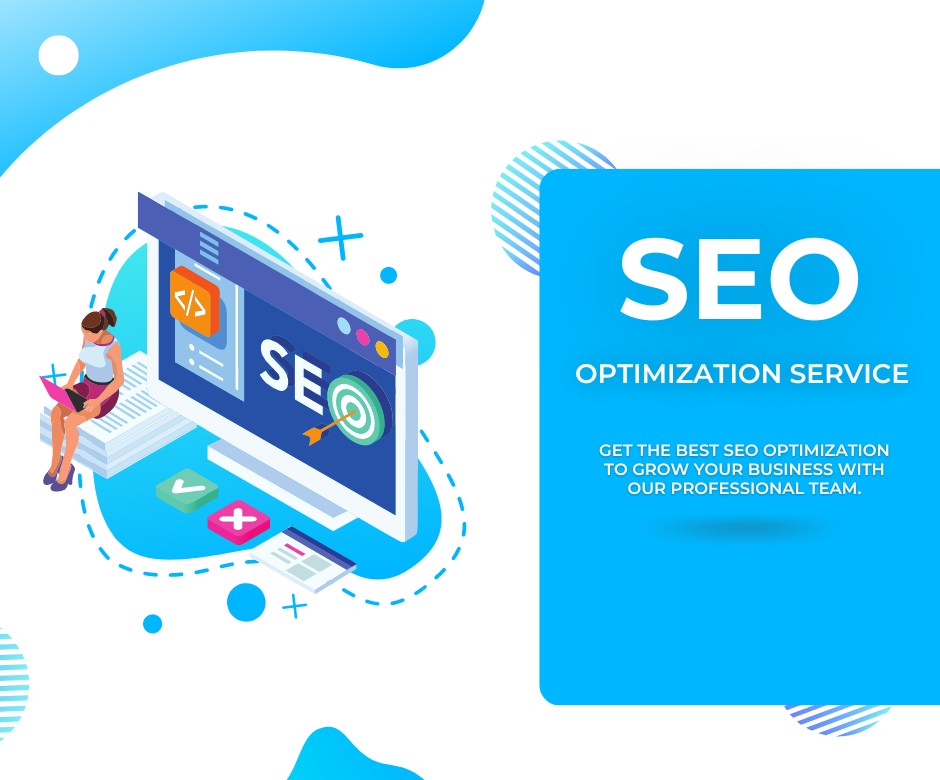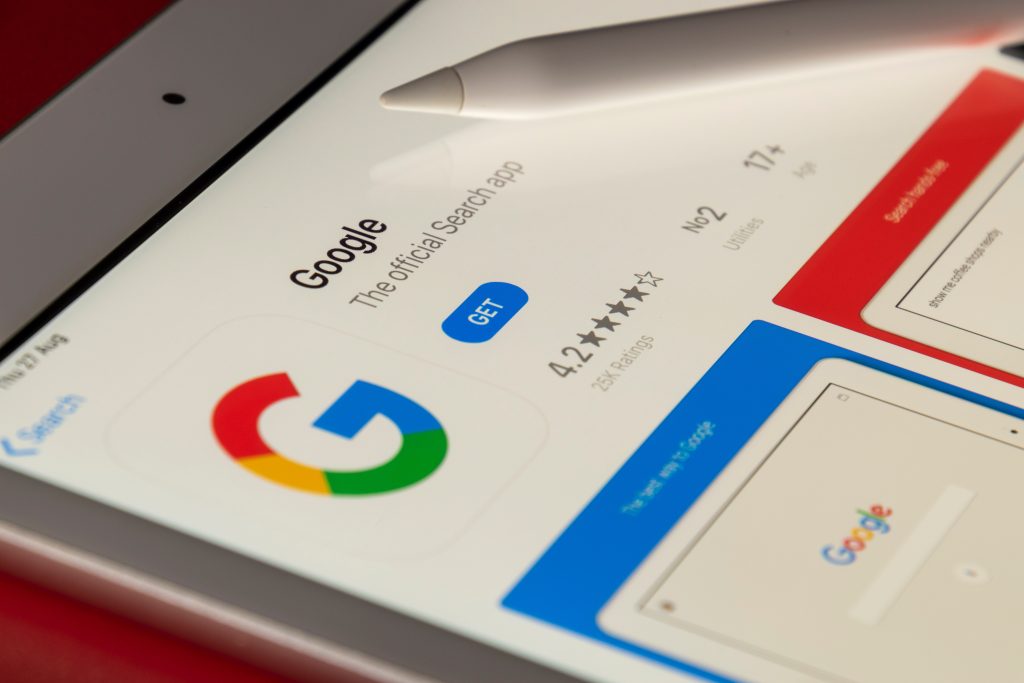SEO is the key to any successful online business. Without it, your website won’t get the necessary traffic or visibility. The good news is that SEO doesn’t have to be complicated. By following a few simple tips and best practices, even small business owners can optimize their websites for maximum performance. In this blog post, we’ll explore 10 essential SEO tips that will help you improve your rankings and get more organic traffic. From keyword research to link building and beyond, these tips will set you on the path to success.
What is SEO?
SEO is short form for “Search engine optimization”. It is a long-term marketing strategy employed in order to improve a websites visibility and organic search results in google and other global search engines.
SEO involves optimizing a website for Google’s algorithm. The algorithm is constantly changing, so SEO is an ongoing process. The goal of SEO is to get your website to rank as high as possible for relevant keywords.
The higher your website ranks, the more likely people are to find it when they search Google.
The Different Types of SEO
SEO is short form for “Search engine optimization”. It is a long-term marketing strategy employed in order to improve a websites visibility and organic search results in google and other global search engines.
There are three types of SEO you need to know about: on-page SEO, off-page SEO, and technical SEO.
On-Page SEO: On-page SEO refers to all the things you can do on your website to help you rank higher in search engine results pages (SERPs). This includes optimizing your website content, title tags, metatags, images etc.
Off-Page SEO: Off-page SEO refers to all the activities done outside of your website that can help you rank higher in SERPs. This includes link building, social media signals, local citations etc.
Technical SEO: Technical SEO is all about improving your website’s infrastructure and making it easier for search engines to crawl and index your site. This includes optimizing your website’s code, structure, navigation, sitemaps, robots.txt file etc.
On-Page SEO Factors
There are many on-page SEO factors that can affect your rankings. Here are some of the most important ones:
1. Title tags – Your title tags should be unique and descriptive, and include your target keywords.
2. Meta tags – Meta tags provide information about your website to search engines. Be sure to include relevant keywords in your meta tags.
3. Headings – Headings help break up your content and make it easier to read. Include keywords in your headings to help improve your SEO.
4. Alt text – Alt text is used to describe images for those who can’t see them. Be sure to include relevant keywords in your alt text so that search engines can index your images properly.
5. Page URL – Your page URL should be short and descriptive, and include your target keywords.
6. Page content – Your page content should be keyword-rich, informative, and original. Make sure to use proper grammar and spelling, as well as formatting (such as headlines, bullet points, etc.).
Off-Page SEO Factors
1. Off-Page SEO Factors:
There are many different factors that contribute to how well your website ranks in the search engines. While some of these factors are within your control, others are not. Here is a look at the most important off-page SEO factors that can impact your rankings:
1) The Quality of Your Backlinks: Having high-quality backlinks from authoritative websites is one of the most important ranking factors. Search engines view backlinks as votes of confidence and the more votes you have, the higher you will rank. To get quality backlinks, focus on building relationships with other website owners and delivering quality content that others will want to link to.
2) Social Shares and Engagement: Social media activity can also help boost your website’s ranking. Search engines take social signals into account when determining where to rank websites. So, if your website is being shared and liked on social media, it will likely rank higher than a similar website that doesn’t have this social activity.
3) Your Website’s
Local SEO Strategies
1. Local SEO Strategies
If you want to rank higher in search engine results pages (SERPs), focusing on local SEO is a solid approach. Here are some tips to get started:
1) Optimize your website for local keywords. Include city and state names in your titles, tags, and descriptions. For example, if you’re a plumber in Atlanta, your title might be “Atlanta Plumber – Services Offered”.
2) Create location-specific pages. In addition to your main website, create separate pages for each city or region you serve. Be sure to optimize these pages for local keywords as well.
3) Add your business to online directories. Google My Business is a good place to start, but there are other directories specific to your industry and location that you can add your business to as well.
4) Get involved in the community. Sponsor local events, write blog posts about local news and happenings, and generally make yourself known in the area you serve. This will help build up your authority and improve your chances of ranking higher in SERPs.
Ecommerce SEO Strategies
If you want to improve your ecommerce website’s SEO and see real results, you need to start with a solid foundation. That means having keyword-rich titles, descriptions, and product pages that are optimized for the search engines. It also means making sure your website is mobile-friendly and loads quickly.
Once you have a solid foundation in place, you can start implementing some of the following ecommerce SEO strategies:
1. Use long-tail keywords
Long-tail keywords are specific phrases that searchers are more likely to use when they’re closer to making a purchase. For example, instead of just using the keyword “shoes,” a long-tail keyword could be “women’s black leather flats.”
To find long-tail keywords that are relevant to your products or services, you can use a keyword research tool like Google Keyword Planner or Moz Keyword Explorer.
2. Optimize your product pages for the search engines
Each of your product pages should be optimized for the search engines with unique titles, descriptions, and images. This will help your product pages rank higher in the search results and give potential customers more information about what you have to offer.
3. Create informative blog posts and articles In addition to optimizing your product pages, you should also create informative blog posts and articles that are relevant to your niche. This will not only help with SEO but it will
Technical SEO Tips
1. Technical SEO Tips
If you want your website to rank higher in search engine results pages (SERPs), then you need to pay attention to your website’s technical SEO. Technical SEO refers to the optimization of your website’s infrastructure and code in order to improve its visibility and indexation by search engines. Here are some technical SEO tips that will help you boost your rankings:
1. Use an HTTPS connection: HTTPS is a more secure version of the HTTP protocol that is used to communicate between web browsers and servers. Search engines prefer websites that use HTTPS, so using an HTTPS connection can help you boost your rankings. You can switch from HTTP to HTTPS by getting an SSL certificate for your website and updating your site’s URL in the Google Search Console.
2. Optimize your website’s speed: A fast website is essential for good user experience, and search engines also take website speed into account when ranking websites. You can optimize your website’s speed by compressing images, minifying CSS and JavaScript files, and using a content delivery network (CDN).
3. Improve your website’s structure: A well-structured website is easier for search engines to crawl and index, which can help you improve your rankings. You can improve your website’s structure by adding clear titles and descriptions for each page, using keyword-rich URLs, and creating a sitemap.xml file.
Advanced SEO Strategies
As a website owner, you are always looking for ways to improve your site’s ranking in the search engines. You may have heard of SEO (search engine optimization) and know that it can be helpful, but are not sure where to start. This article will give you some essential tips that will help you improve your rankings quickly.
SEO is all about making your website more visible to the search engines. When you optimize your site, you are essentially telling the search engines what your site is about and how they should rank it. The better your optimization, the higher your ranking will be.
There are many factors that go into optimization, but there are three primary areas that you should focus on:
1. Keywords: Identify the keywords that people are searching for when they are looking for information related to your business or website. Use these keywords throughout your site, including in the title, in the content, and in the keywords section of your website’s code.
2. Links: One of the most important factors in ranking is links. Links from other websites show search engines that your site is popular and relevant. The more links you have pointing to your website, the higher your ranking will be. You can increase your link popularity by submitting your site to directories, writing articles and blog posts with links back to your site, and listing your site in online directories.
3.
How to Measure Your SEO Results
There are a number of ways to measure your SEO results, and it is important to track your progress so that you can see the impact of your efforts. Here are some key metrics to track:
-Search engine rankings: Track where your site ranks for key keywords in search engines. This will give you an idea of how well your SEO efforts are paying off.
-Website traffic: Keep track of the overall traffic to your website. You should see an increase in traffic as your SEO efforts start to take effect.
-Leads and sales: If you have an ecommerce site, track the number of leads and sales generated from organic search traffic. This will give you a good indication of whether your SEO efforts are translating into tangible results.
-Cost per conversion: Track how much it costs you to convert a lead or sale through organic search traffic. This metric will help you gauge the ROI of your SEO campaigns.
By tracking these key metrics, you will be able to see the impact that your SEO efforts are having on your business and determine whether they are worth the investment.
Conclusion
Staying on top of SEO trends and practices is essential in today’s fast-paced digital world. We hope that our 10 essential SEO tips have provided you with a good foundation upon which to improve your rankings and visibility online. With the right strategies and techniques, you can make sure that your content stands out from the competition in search engine results pages. Remember, SEO isn’t something you do once; it is an ongoing process that needs regular attention if you want to be successful!





